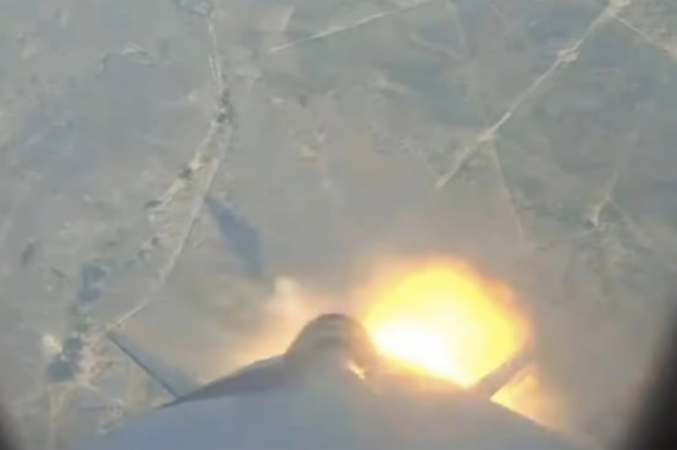
United States: In the first launch accident Monday of Jeff Bezos' space travel company, a rocket crashed back to Earth shortly after takeoff, but the experiment capsule was able to parachute to safety.
The Blue Origin flight, which used the same type of rocket that carried customers to the edge of space, had no passengers. The Federal Aviation Administration announced that the rockets were on hold until the investigation was complete.
A little more than a minute had passed since the West Texas launch of the New Shepard rocket, when bright yellow flames erupted from the area around the engine below. Lifting the craft off the surface, the capsule's emergency launch abort system was immediately engaged. The capsule parachuted to the ground several minutes later.
According to the FAA, which is responsible for ensuring that the general public is safe during commercial space launches and landings, the rocket crashed without injury or damage.
Blue Origin's launch commentary kicked off Monday morning when the rocket exploded from the capsule. It then declared: "It appears that we have experienced an anomaly with today's flight. This was not anticipated.
There was a booster failure today in a driverless flight. About an hour later, the Washington-based company Kent tweeted that the escape system had worked as intended. Later, according to the company, the rocket crashed.
The accident occurred while the rocket was traveling at an estimated speed of 700mph (about 1,126 km/h) at an altitude of 8,500 m (28,000 ft). After the failure, only a video of the capsule was shown, not the rocket. This happened around the time when the rocket was at the highest pressure, or Max-Q.
After landing directly on the desert floor, the rocket is usually recycled for subsequent launches.
The webcast showed the capsule climbing to an altitude of more than 11,300 meters (37,000 ft). 36 experiments were on board to experience a brief period of weightlessness. NASA funded half of them, mostly from student donations.
Named after Alan Shepard, the first American to go into space, the New Shepard program flew for the 23rd time. This particular rocket-capsule pair, which was used to conduct the flight experiment, made its ninth flight.
The most recent flight with paying passengers by Blue Origin was just last month; Ticket price has not been made public. Bezos was a member of the inaugural New Shepard crew in 2017. In total, Blue Origin flew 31 passengers for ten minutes, including William Shatner.
The rocket was supposed to launch about two weeks ago, but inclement weather postponed it until Monday.
Elon Musk court orders a Twitter whistle-blower In a dispute over a buyout
Gautam Adani becomes world's 3rd richest person
Korean Govt YouTube channel hacked to stream crypto Elon Musk video